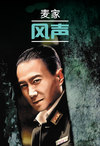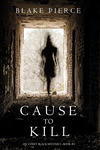Kitabı oku: «Мертвая комната. Уровень 2 / The Dead Secret», sayfa 3
Chapter VII
Andrew Treverton's misanthropy was genuine. He was an incorrigible hater of mankind. He was a phenomenon in the nursery, a butt at school, and a victim at college.
At school, Andrew became fond of one among his school-fellows. Nobody could discover the smallest reason for it, but it was nevertheless a notorious fact that Andrew's pocket-money was always at this boy's service. But when his purse grew light in his friend's hand, the hero of his simple admiration abandoned him to embarrassment, to ridicule, and to solitude, without a word of farewell.
Andrew left home to travel. The life he led, the company he kept, during his long residence abroad, did him permanent and fatal harm. When he at last returned to England, he believed in nothing. At this period of his life, his only chance for the future lay in the good results which his brother's influence over him produced. But the quarrel occasioned by Captain Treverton's marriage broke it off forever. From that time, for all social interests and purposes, Andrew was a lost man.
“My dearest friend forsook and cheated me,” he said. “My only brother has quarreled with me for the sake of an actress. What to expect of the rest of mankind after that? I have suffered twice for my belief in others – I will never suffer again. My business in this world is to eat, drink, sleep, and die! “
After his brother's marriage, Andrew lived in the neighborhood of Bayswater. He bought a cottage and he was living like a miser. He had got an old man-servant, named Shrowl, who was even a greater enemy to mankind than himself.
His contempt for his own wealth was quite as hearty as his contempt for the wealth of his neighbors. Andrew Treverton and Shrowl sustained life with the least possible dependence on the race of men who, as they conceived, cheated them infamously.
They ate like primitive men, and they lived in all other respects like primitive men also. They had pots, pans, and pipkins, two deal tables, two chairs, two old sofas, two short pipes, and two long cloaks. They had no carpets and bedsteads, no cabinets, book-cases, or ornamental knickknacks of any kind, no laundress. When either of the two wanted to eat and drink, he cut off his crust of bread, cooked his bit of meat, drew his drop of beer, without the slightest reference to the other. When either of the two needed a clean shirt, which was very seldom, he went and washed one for himself. And when either of the two wanted to go to sleep, he wrapped himself up in his cloak, lay down on one of the sofas, and took what repose he required, early in the evening or late in the morning, just as he pleased.
Sometimes they sat down opposite each other, and smoked for hours, generally without a word. Whenever they did speak, they quarreled.
On a certain morning, Mr. Treverton descended from the upper regions of the cottage to one of the rooms on the ground-floor. Like his elder brother, he was a tall, well-built man. But his bony, haggard, sallow face did not bear the slightest resemblance to the handsome, open, sunburnt face of the Captain. With unbrushed hair and unwashed face, with a tangled gray beard, and an old, patched, dirty flannel dressing-gown this descendant of a wealthy and ancient family looked as if his birthplace was the work-house.
It was breakfast-time. Mr. Treverton took a greasy knife out of the pocket of his dressing-gown, cut off a rasher of bacon, jerked the gridiron onto the fire, and began to cook his breakfast. The door opened, and Shrowl entered the room, with his pipe in his mouth.
Neither master nor servant exchanged a word or took the smallest notice of each other on first meeting. Mr. Treverton finished his cooking, took his bacon to the table, and began to eat his breakfast. Then he looked up at Shrowl, who was at that moment opening his knife and approaching the bacon with greedy eyes.
“What do you mean by that?” asked Mr. Treverton and pointed with indignant surprise at Shrowl's breast. “You ugly brute, you've got a clean shirt on!”
“Thank you, Sir,” said Shrowl. “This is a joyful occasion, it's my master's birthday. Many happy returns, Sir. Perhaps you think I forget that today is your birthday? How old are you today? It's a long time ago, Sir, since you were a plump little boy, with a frill round your neck, and marbles in your pocket, and kisses and presents from Pa and Ma and uncle and aunt, on your birthday. Don't you be afraid of me. I will put this shirt on your next birthday; or your funeral, Sir.”
“Don't waste a clean shirt on my funeral,” retorted Mr. Treverton. “I won't left you any money in my will, Shrowl. You'll be on your way to the work-house when I'm on my way to the grave.”
“Have you really made your will at last, Sir?” inquired Shrowl. “I humbly beg pardon, but I always thought you were afraid to do it.”
Mr. Treverton thumped his crust of bread on the table, and looked up angrily at Shrowl.
“You fool!” said he. “I don't make it, and I won't make it, on principle16. Rich men who leave money behind them are the farmers who raise the crop of human wickedness. When a man is bad, if you want to make him worse, leave him a legacy!”
Shrowl chuckled sarcastically.
“Whom will get my money?” cried Mr. Treverton. “My brother, who thinks me a brute now; who thinks me a fool then?! He will spend all my money among crazy people and actors? Or the child of that actress, whom I have never seen. Mr. Shrowl! I laugh when I know I'm not going to leave you a sixpence.”
Shrowl got a little irritated.
“What's the use of talking nonsense about your money?” he said. “You must leave it to somebody.”
“Yes, I will,” said Mr. Treverton. “I will leave it, as I have told you over and over again, to the first Somebody I can find who honestly despises money.”
“That means nobody,” grunted Shrowl.
“I know what to do!” retorted his master.
Before Shrowl uttered a word, there was a ring at the gate-bell of the cottage.
“Go out,” said Mr. Treverton, “and see what that is.”
Mr. Treverton filled and lit his pipe. Soon Shrowl returned, and reported a man visitor.
“I picked up his letter,” said Shrowl. “He poked it under the gate and went away. Here it is.”
As Mr. Treverton opened the envelope, two slips dropped out. One fell on the table before which he was sitting; the other fluttered to the floor. This last slip Shrowl picked up and looked over its contents.
Mr. Treverton began to read the letter. The letter was not long. He read it down to the signature, and went through it again from the beginning.
“Shrowl,” he said, very quietly, “my brother, the Captain, is drowned.”
“I know,” answered Shrowl.
“I wonder what he thought about me when he was dying?” said Mr. Treverton, abstractedly.
“He didn't waste a thought on you or anybody else,” remarked Shrowl.
“Damn that woman!” muttered Mr. Treverton.
He read the letter again:
“Sir,
As the old legal adviser and faithful friend of your family, I acquaint you with the sad news of your brother's death. This deplorable event occurred on board the ship of which he was captain, during a gale of wind. I enclose a detailed account of the shipwreck, extracted from The Times, by which you will see that your brother died nobly. I also send a slip from the local Cornish paper.
I must add that no will has been found, after the most rigorous search, among the papers of the late Captain Treverton. So Porthgenna, his only property, derived from the sale of his estate, will go in due course of law17 to his daughter.
I am, Sir, your obedient servant,
Alexander Nixon.”
The newspaper-slip contained the paragraph from The Times. The other slip was from the Cornish paper.
“Why don't you read about what a great man your brother was, and what a good life he led?” asked Shrowl. “Why don't you read about what a wonderful handsome daughter he's left, and what a capital marriage she's made along with the man that's owner of your old family estate? The ill wind – that killed her father – brought her forty thousand pounds. Why don't you read about it? She and her husband have got a better house in Cornwall than you have got here. Aren't you glad of that?”
The only words Andrew said were these two -
“Go out! And hold your tongue henceforth and forever about my brother and my brother's daughter. Hold your tongue – leave me alone – go out!”
Shrowl slowly withdrew from the room.
Mr. Treverton pushed aside his chair, and walked up and down. He whispered a few words to himself and threw both the newspaper-slips into the fire.
Chapter VIII
Mr. and Mrs. Frankland started from London on the ninth of May, and stopped at the station of a small town in Somersetshire. A robust boy entered this world a month earlier, and preferred to make his first appearance in a small Somersetshire inn.
Young Mr. Orridge, the new doctor, felt a thrill of pleasurable agitation when he heard that the wife of a blind gentleman of great fortune required all his skill and attention. There were a dozen different reports about Mr. Frankland's blindness, and the cause of it.
So at eight o'clock in the evening the child was born, and Mr. Orridge performed his duties.
On the next day, and the next, and for a week after that, the accounts were favorable. But on the tenth day a catastrophe was reported. The nurse was suddenly ill.
Mr. Frankland telegraphed to a friend in London for a nurse, but the doctor was against that plan, except as a last resource. He wanted to find the right person here. But Mr. Orridge met with no success. He found plenty of volunteers, but they were all loud-voiced, clumsy-handed, heavy-footed countrywomen, kind and willing enough, but sadly awkward.
At two o'clock Mr. Orridge went to a country-house where he had a child-patient to see. “Perhaps I may remember somebody who may be the right person,” thought Mr. Orridge, as he got into his gig. “I have some hours at my disposal still, before the time comes for my evening visit at the inn.”
He thought about Mrs. Norbury. She was frank, good-humored, middle-aged woman. Her husband was a country squire. Mr. Orridge asked Mrs. Norbury to help him to find a good nurse, as she was an old resident in the West Winston neighborhood.
“You mean,” answered Mrs. Norbury, “have I heard about that poor unfortunate lady who had a child born at the inn? How is the lady? Who is she? Is the child well? Is she comfortable? Can I send her anything, or do anything for her?”
“You can do a great thing for her, and render a great assistance to me,” said Mr. Orridge, “if you tell me of any respectable woman in this neighborhood – a proper nurse for her.”
“You don't mean to say that the poor creature has not got a nurse!” exclaimed Mrs. Norbury.
“She has had the best nurse in West Winston,” replied Mr. Orridge. “But, most unfortunately, the woman was taken ill this morning, and went home.”
“Frankland, did you say her name was?” inquired Mrs. Norbury.
“Yes. She is, I understand, a daughter of that Captain Treverton who was lost with his ship a year ago in the West Indies. Perhaps you may remember the account of the disaster in the newspapers?”
“Of course I do! And I remember the Captain too. I was acquainted with him when he was a young man, at Portsmouth. But who is with Mrs. Frankland now?”
“Her maid; but she is a very young woman, and doesn't understand nursing duties. The landlady of the inn is ready to help when she can. I suppose we shall telegraph to London and get somebody by railway.”
“And that will take time, of course. And the new nurse may be a drunkard or a thief, or both,” said the Mrs. Norbury. “I am ready, I am sure, to take any trouble, or make any sacrifice, if I can be of use to Mrs. Frankland. Mr. Orridge, I think we will consult my housekeeper, Mrs. Jazeph. She is an odd woman, with an odd name; but she has lived with me in this house more than five years. She may know somebody in our neighborhood who can suit you, though I don't.”
With those words, Mrs. Norbury rang the bell. The housekeeper entered the room.
Mr. Orridge looked at her, with an interest and curiosity. She was woman of about fifty years of age. His medical eye detected that some of the intricate machinery of the nervous system went wrong with Mrs. Jazeph. He noted the painful working of the muscles of her face, and the hectic flush that flew into her cheeks when she entered the room and found a visitor there. He observed a strangely scared look in her eyes.
“This is Mr. Orridge, the medical gentleman who has lately settled at West Winston,” said Mrs. Norbury to the housekeeper. “He is in attendance on a lady18 who stopped, on her journey westward, at our station, and who is now staying at the Tiger's Head Inn. You have heard something about it, have you not, Mrs. Jazeph?”
“Yes, ma'am,” said Mrs. Jazeph.
“Well,” continued Mrs. Norbury, “this poor lady needs a nurse for her child. Mr. Orridge can find nobody, and I can tell him of nobody. Can you help us, Mrs. Jazeph? Are there any women down in the village, or among Mr. Norbury's tenants, who understand nursing?”
Mrs. Jazeph reflected for a little while, and then said, very respectfully, but very briefly also, that she knew of no one whom she could recommend.
“Mr. Orridge told me just before you came in,” said Mrs. Norbury, “that she is the daughter of Captain Treverton, whose shipwreck – ”
Mrs. Jazeph looked at the doctor. She moved right hand so suddenly that it struck against a bronze statuette of a dog. The statuette fell to the ground.
“Oh!” exclaimed Mrs. Norbury. “The dog is not hurt – put it back again! Well, as I was saying, this lady is the daughter of Captain Treverton, whose dreadful shipwreck we all read about in the papers. I knew her father in my early days, and I am doubly anxious to be of service to her now. Think again. Is there anybody to nurse her? I am so anxious to help this poor lady through her difficulty, if I can.”
“I am very sorry,” said Mrs. Jazeph, “very sorry that I can think of no one who is fit; but – ”
She stopped.
“But what?” asked Mrs. Norbury.
“Ma'am,” answered Mrs. Jazeph, “I can nurse her if you allow.”
“What, nurse her yourself!” exclaimed Mrs. Norbury. “I see your kindness of heart and your readiness to make yourself useful. Of course I am not so selfish, under the circumstances, as to think twice of the inconvenience of losing my housekeeper. But have you ever had any practice in nursing?”
“Yes, ma'am,” answered Mrs. Jazeph. “Shortly after my marriage” (the flush disappeared, and her face turned pale again as she said those words), “I had some practice in nursing, and continued it at intervals until the time of my husband's death.”
“What do you say, Mr. Orridge?” asked Mrs. Norbury.
“I gratefully accept your kindness and your housekeeper's offer,” he said.
“Mr. Orridge accepts your offer with thanks,” said Mrs. Norbury.
A gleam of joyful surprise broke over the housekeeper's face.
“When will my attendance be required, Sir?” she asked.
“As soon as possible,” replied Mr. Orridge. “I suppose you have some preparations to make?” The doctor took his hat and bowed to Mrs. Norbury.
“Come to the Tiger's Head, and ask for me. I shall be there between seven and eight. Many thanks again, Mrs. Norbury.”
“My best wishes and compliments to your patient, doctor.”
“At the Tiger's Head, between seven and eight this evening,” reiterated Mr. Orridge, as the housekeeper opened the door for him.
“Between seven and eight, Sir,” repeated the soft, sweet voice.
Chapter IX
At seven o'clock Mr. Orridge put on his hat to go to the Tiger's Head. He opened his own door, when a messenger summoned him immediately to a case of sudden illness in the poor quarter of the town. So he delayed his attendance for a little while at the inn. The performance of his professional duty occupied some time. It was a quarter to eight before he left his house, for the second time, on his way to the Tiger's Head.
The new nurse was waiting for him. Mrs. Jazeph was sitting alone in the corner far from the window. He was rather surprised to see that she drew her veil down.
What feeling was she anxious to conceal?
“Please follow me,” said Mr. Orridge, “I will take you to Mrs. Frankland immediately.”
Mrs. Jazeph rose slowly.
“You seem tired,” Mr. Orridge said.
“No, Sir.”
There was some restraint in her voice as she made that answer; and still she never attempted to lift her veil.
The room which Mrs. Frankland occupied was situated at the back of the house. It had one window, the bed stood in the middle of the room.
“How do you find yourself19 tonight, Mrs. Frankland?” asked Mr. Orridge. He undrew the curtains. “Do you think you will be any the worse for a little circulation of air?”
“On the contrary, doctor, I shall be all the better,” was the answer. “But did anybody come into the room with you? Lenny, are you there?”
“Mr. Frankland is still at dinner,” said the doctor. “But this is Mrs. Jazeph.”
The housekeeper stood between the bed and the fire-place. When Mr. Orridge called to her, she appeared at the other side of the bed, where the window was behind her. Her shadow stretched obliquely across the counterpane, and its dusky edges touched the figures of the mother and child.
“Gracious goodness! Who are you?” exclaimed Rosamond. “A woman or a ghost?”
Mrs. Jazeph's veil was up at last. Although her face was in shadow, the doctor saw a change over it when Mrs. Frankland spoke. The lips dropped and quivered a little; the eyebrows contracted suddenly.
“Who are you?” repeated Rosamond. “And why do you stand there – between us and the sunlight?”
Mrs. Jazeph neither answered nor raised her eyes. She only moved back timidly to the farthest corner of the window.
“This is a new nurse,” said Mr. Orridge. He pointed across the bed to Mrs. Jazeph.
“You don't say so!” exclaimed Rosamond. “Pray come here, come nearer, Mrs. Jazeph. I hope I shall not give you much trouble. I am sure you will find the baby easy to manage. He is a perfect angel, and sleeps like a dormouse. But I am afraid you are in very delicate health yourself.”
Mrs. Jazeph bent down over the laburnum blossoms on the bed, and began hurriedly and confusedly to gather them together.
“I thought as you do, Mrs. Frankland,” said Mr. Orridge. “But they say that Mrs. Jazeph's capabilities as a nurse quite equal her zeal.”
“Are you going to gather these flowers together?” asked Mrs. Frankland the new nurse. “How thoughtful of you! And how magnificent it will be! I am afraid you will find the room very untidy.”
“Ma'am, I shall be very glad to be of use to you,” said Mrs. Jazeph.
She looked up; and her eyes and Mrs. Frankland's met. Rosamond instantly drew back on the pillow.
“How strangely you look at me!” she said.
Mrs. Jazeph moved away suddenly to the window.
“I hope we shall be friends,” said Rosamond. “Never mind what I say.”
The new nurse went back to the part of the room where she was hidden from view, between the fire-place and the closed curtains. Rosamond wanted to express her surprise to the doctor, but he turned away at the same moment to observe what Mrs. Jazeph was doing on the other side of the bed-curtains.
Mrs. Jazeph's hands were both raised to her face. Then went to the dressing-table, and began to arrange the various useful and ornamental objects. She set them in order with remarkable dexterity and neatness, which impressed Mr. Orridge very favorably. Noiselessly, modestly, observantly, she moved from side to side of the room, and neatness and order followed her steps wherever she went.
“What an odd woman she is,” whispered Rosamond.
“Odd, indeed,” returned Mr. Orridge, “and probably ill. However, she is wonderfully careful, and let us try her for one night – that is to say, unless you feel any objection.”
“On the contrary,” said Rosamond, “she rather interests me. There is something in her face and manner – I can't say what – that makes me feel curious to know more of her. I will talk to her. Doctor, don't stop here in this dull room. Why not go downstairs, and talk to my husband? Do go and talk to him, and amuse him a little – he must be so dull, poor fellow, while I am up here; and he likes you, Mr. Orridge – he does, very much. Stop one moment, and just look at the baby again. And, Mr. Orridge, one word more: bring my husband upstairs to wish me good-night.”
Mr. Orridge left the bedside. As he opened the room door, he stopped to talk to Mrs. Jazeph. The new nurse, when he passed by her, was kneeling over one of Mrs. Frankland's open trunks. She was arranging some articles of clothing. Just before he spoke to her, he observed that she had a chemisette in her hand. The moment she became aware of his approach she dropped the chemisette suddenly in the trunk, and covered it over with some handkerchiefs.
“Pray don't trouble yourself about my luggage,” said Rosamond to Mrs. Jazeph. “That is my idle maid's business. Come here and sit down and rest yourself. You must be a very unselfish, kind-hearted woman to give yourself all this trouble to serve a stranger. The doctor's message this afternoon told me that your mistress was a friend of my poor, dear father's. Don't go away, there, to the window. Come and sit down by me.”
Mrs. Jazeph was approaching the bedside – when she suddenly turned away in the direction of the fire-place, just as Mrs. Frankland began to speak of her father.
“Come and sit here,” reiterated Rosamond. “What are you doing there?”
The figure of the new nurse again interposed between the bed and the evening light that glimmered through the window before there was any reply.
“It's dark,” said Mrs. Jazeph, “and the window is not shut. I will shut it and draw down the blind20, if you have no objection, ma'am.”
“Oh, not yet! not yet! Shut the window, if you please, but don't draw down the blind. At this dim time, I have my childish recollections of a Cornish moor. Do you know anything about Cornwall, Mrs. Jazeph?”
“I have heard – ”
At those first three words of reply the nurse stopped.
“What have you heard?” asked Rosamond.
“I have heard that Cornwall is a wild, dreary country,” said Mrs. Jazeph. “Ma'am, I'll be very glad to make you comfortable for the night.”
Mrs. Frankland accepted the offer. Mrs. Jazeph prepared the Eau de Cologne21 and water.
“Why not light a candle?” suggested Rosamond.
“I think not, ma'am,” said Mrs. Jazeph, rather hastily. “I can see quite well without.”
She began to brush Mrs. Frankland's hair as she spoke.
“Pray don't look surprised, Mrs. Jazeph,” Rosamond said. “I'm very rude and odd, I know. You have brushed my hair delightfully; but – I can't tell how – it seemed, all the time, as if you were brushing the strangest fancies into my head. Do you know, once or twice, I absolutely fancied, when your face was closest to mine, that you wanted to kiss me! Did you ever hear of anything so ridiculous? I am more of a baby than the little darling here by my side!”
Mrs. Jazeph made no answer. She left the bed while Rosamond was speaking, and came back with the Eau de Cologne and water. Rosamond was afraid that she seriously offended Mrs. Jazeph, and tried to soothe and propitiate her. There was a slight trembling in the sweet voice of the new nurse.
“I am sure you love children,” Rosamond said. “I want to ask if you have ever had a child of your own?”
Mrs. Jazeph was standing near a chair when she heard that question. She sat down so heavily, that the woodwork cracked. Her head dropped low on her bosom. She did not utter, or even attempt to utter, a single word.
Rosamond said nothing, as she stooped over the baby to kiss him. The room grew darker and darker; but Mrs. Jazeph made no attempt to strike a light. Rosamond did not feel quite comfortable, with nobody in the room but a person who was as yet almost a total stranger.
“Mrs. Jazeph,” Rosamond said, “please light the candles and pull down the blind.”
“Are you very fond of Cornwall, ma'am?” asked Mrs. Jazeph. She rose to light the candles.
“Indeed I am,” said Rosamond. “I was born there. My husband and I were on our way to Cornwall when we were obliged to stop at this place. Can't you find the match-box?”
Mrs. Jazeph, with an awkwardness broke some matches. At the third attempt she was more successful; but she only lit one candle. She carried the candle away from the table which Mrs. Frankland saw, to the dressing-table.
“Why do you move the candle?” asked Rosamond.
“I thought it was best for your eyes, ma'am, not to have the light too near them,” replied Mrs. Jazeph; and then added hastily, “And so you were going to Cornwall, ma'am, when you stopped at this place? To travel a little, I suppose?”
The nurse took up the second candle.
Rosamond thought that the nurse, in spite of her gentle looks and manners, was a remarkably obstinate woman.
“Oh, no! Not to travel,” Rosamond said, “but to go straight to the old country-house where I was born. It belongs to my husband now, Mrs. Jazeph. I have not been near it since I was a little girl of five years of age. Such a ruinous, rambling old place! You, who talk of the dreariness and wildness of Cornwall, will be quite horrified at the very idea of living in Porthgenna Tower.”
The sound of Mrs. Jazeph's silk dress, as she moved about the dressing-table, was audible. It ceased instantaneously when she said the words “Porthgenna Tower,” and for one moment there was a dead silence in the room.
“You, I suppose, can not imagine what a place it is that we are going to,” pursued Rosamond. “What do you think, Mrs. Jazeph, of a house with one whole side of it that has never been inhabited for sixty or seventy years past? There is a west side, we will live there, and a north side, where the empty old rooms are, which I hope we shall be able to repair. Only think of the ghosts in those uninhabited rooms! How I shall astonish the housekeeper, when I get to Porthgenna, and ask her for the keys of the ghostly north rooms!”
A low cry followed Mrs. Frankland's last words. She started in the bed, and asked eagerly what was the matter.
“Nothing,” answered Mrs. Jazeph. “Nothing, ma'am – nothing, I assure you. I struck my side, by accident, against the table22.”
“But you speak as if you were in pain,” said Rosamond.
“No, no – not in pain. Not hurt-not hurt, indeed.”
While Mrs. Jazeph was declaring that she was not hurt, the door of the room was opened, and the doctor entered, with Mr. Frankland.
“We come early, Mrs. Frankland, but we are going to wish you good-night,” said Mr. Orridge. He paused. “I am afraid you were talking and exciting yourself a little too much,” he went on. “Where is the nurse?”
Mrs. Jazeph was looking at Mr. Frankland with an eager, undisguised curiosity. All the time Mr. Orridge was speaking, her eyes wandered away from him to the part of the room where Mr. and Mrs. Frankland were talking together.
Mr. Orridge quietly led Mr. Frankland out of the room, just as Rosamond was taking the child up in her arms. He stopped to whisper one last word to Mrs. Jazeph.
“If Mrs. Frankland wants to talk, you must not encourage her,” he said. “There is a chair-bedstead in that corner, which you can open for yourself when you want to lie down. Keep the candle where it is now, behind the curtain.”
Mrs. Jazeph made no answer; she only looked at the doctor. That strangely scared expression in her eyes was more apparent than ever.
“She will never do,” thought Mr. Orridge. “We shall send to London for a nurse, after all.”
Mrs. Jazeph seemed anxious to speak. Twice she advanced toward the bedside – opened her lips – stopped – and retired confusedly, before she settled herself finally by the dressing-table. Here she remained. Then Mrs. Jazeph began to walk about the room. In a few minutes more she began to ask questions about Porthgenna Tower.
“Perhaps, ma'am,” she said, “perhaps when you see Porthgenna Tower you may not like it so well as you think you will now. Who can tell that you may not get tired and leave the place again after a few days – especially if you go into the empty rooms? I think that a lady like you will get as far away as possible from dirt and dust, and disagreeable smells.”
“I can face worse inconveniences than those,” said Rosamond. “And I am more curious to see the uninhabited rooms at Porthgenna than to see the Seven Wonders of the World. Even if we don't settle altogether at the old house, I feel certain that we shall stay there for some time.”
At that answer, Mrs. Jazeph abruptly turned away, and asked no more questions. She retired to a corner of the room near the door, where the chair-bedstead stood. Then she left it suddenly, and began to walk up and down once more. This unaccountable restlessness, which surprised Rosamond, now made her feel uneasy-especially when Mrs. Jazeph began to talk to herself. She was talking about Porthgenna Tower. And she continued to walk up and down, too. Rosamond's uneasiness began to strengthen.
“What did you say?” asked Rosamond.
Mrs. Jazeph stopped, and raised her head vacantly.
“I thought you were saying something more about our old house,” continued Rosamond. “You say that I ought not to go to Porthgenna, or something of that sort.”
Mrs. Jazeph blushed like a young girl.
“I think you are mistaken, ma'am,” she said, and stooped over the chair-bedstead again.
Rosamond was afraid. What did that mean? What did her whole conduct mean? As Mrs. Frankland asked herself those questions, the thrill of a terrible suspicion turned her cold to the very roots of her hair. Is the new nurse mad? Rosamond's arm stole round the child. And she raised the other arm to catch the bell-rope above her pillow.
Mrs. Jazeph came forward, and said inquiringly, in a whisper:
“Not asleep? Not quite asleep, yet?”
Rosamond did not answer. The nurse knelt down by the pillow, and looked earnestly at Rosamond. She bent forward and whispered into her ear these words:
“When you go to Porthgenna, keep out of the Myrtle Room!”
The hot breath of the woman was terrible. Rosamond started up in bed with a scream, caught hold of the bell-rope, and pulled it violently.
“Oh, hush! hush!” cried Mrs. Jazeph.
Ücretsiz ön izlemeyi tamamladınız.




























